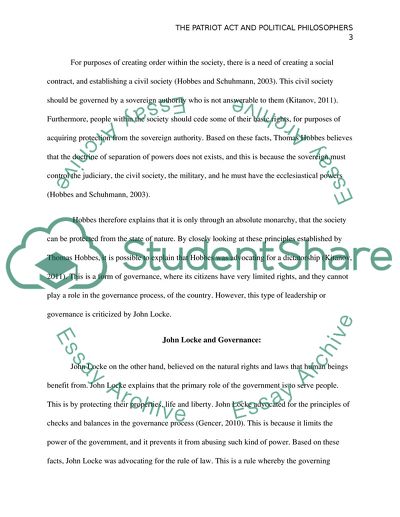Cite this document
(“PATRIOT Act Essay Example | Topics and Well Written Essays - 1250 words”, n.d.)
Retrieved from https://studentshare.org/social-science/1678525-patriot-act
Retrieved from https://studentshare.org/social-science/1678525-patriot-act
(PATRIOT Act Essay Example | Topics and Well Written Essays - 1250 Words)
https://studentshare.org/social-science/1678525-patriot-act.
https://studentshare.org/social-science/1678525-patriot-act.
“PATRIOT Act Essay Example | Topics and Well Written Essays - 1250 Words”, n.d. https://studentshare.org/social-science/1678525-patriot-act.


